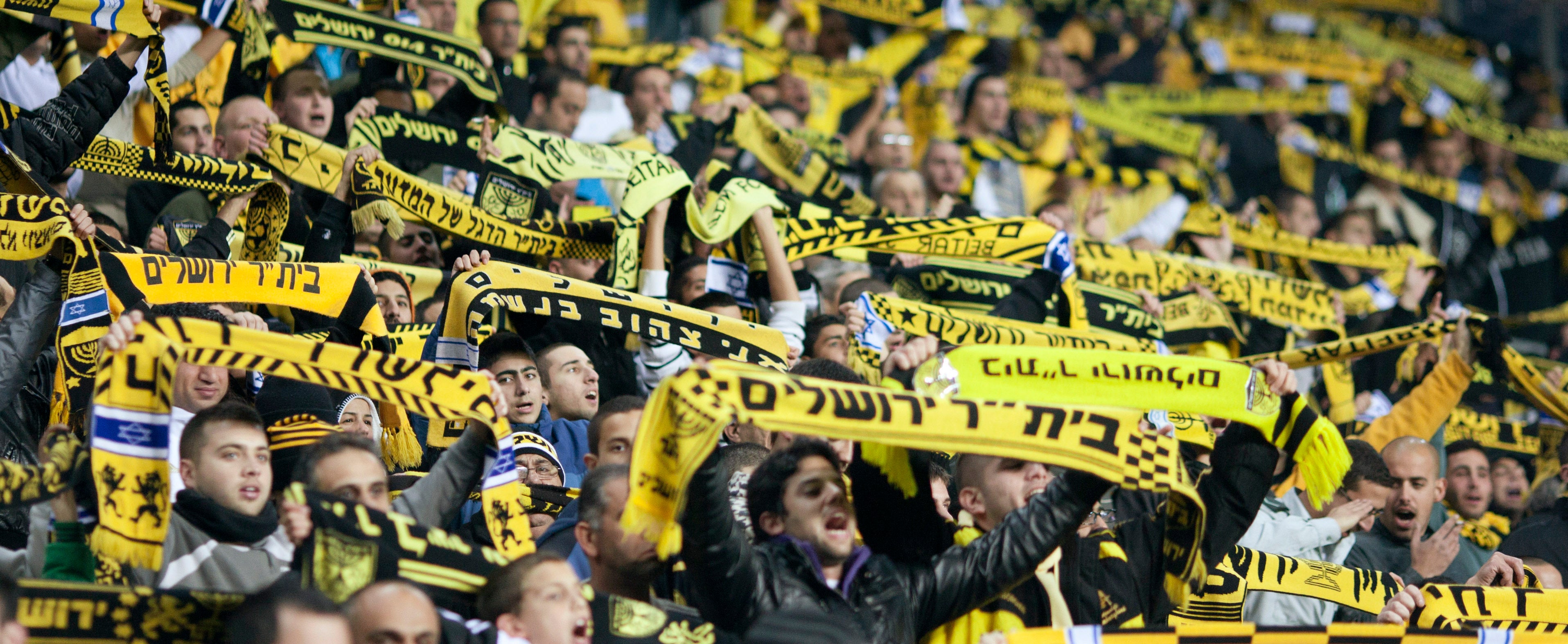UAE sheikh's investment in Israeli soccer club put on hold
Plans for an Emirati sheikh to purchase a 50% ownership stake in Israel’s famed and controversial Beitar Jerusalem soccer club have been put on hold following reports questioning the sheikh’s finances

Your support helps us to tell the story
From reproductive rights to climate change to Big Tech, The Independent is on the ground when the story is developing. Whether it's investigating the financials of Elon Musk's pro-Trump PAC or producing our latest documentary, 'The A Word', which shines a light on the American women fighting for reproductive rights, we know how important it is to parse out the facts from the messaging.
At such a critical moment in US history, we need reporters on the ground. Your donation allows us to keep sending journalists to speak to both sides of the story.
The Independent is trusted by Americans across the entire political spectrum. And unlike many other quality news outlets, we choose not to lock Americans out of our reporting and analysis with paywalls. We believe quality journalism should be available to everyone, paid for by those who can afford it.
Your support makes all the difference.Plans for an Emirati sheikh to purchase a 50% ownership stake in Israel's famed and controversial Beitar Jerusalem soccer club have been put on hold, the team said Thursday, following reports questioning the sheikh's finances.
The purchase was announced to great fanfare in December, billed as the fruit of a U.S.-brokered normalization agreement between Israel and the United Arab Emirates last year. It was also seen as a turning point for a club that had gained notoriety for its racist fans and its refusal to have an Arab player on its roster.
The team had said Sheikh Hamad bin Khalifa Al Nahyan, a member of the Abu Dhabi ruling family, has pledged to invest 300 million shekels, or about $90 million, in the club over the next decade.
But in recent weeks, questions have reportedly arisen about the sheikh's true wealth. The Marker, an Israeli business news website, reported last month that an audit of the sheikh's finances commissioned by Israel's soccer federation revealed several inactive companies and financial discrepancies.
The club confirmed in a statement that the Rights Transfer Committee of the soccer federation, which must approve the sale, requested more documents.
The statement said club owner Moshe Hogeg had planned to fly to Dubai to consult with the sheikh, but was unable to travel because of the recent closure of Israel's airport due to coronavirus restrictions.
“We preferred to withdraw the request, and hand in a new one instead,” it said. “The reports of the deal being off are false.”
Beitar, loosely linked to Prime Minister Benjamin Netanyahu’s Likud party, is one of the country’s most storied franchises, winning 13 trophies and counting Israeli presidents and prime ministers among its fans. But in recent years it has drawn attention for being the only major club never to have an Arab player. Israel’s Arab minority makes up roughly 20% of the population, and Arab players star on rival teams and the country’s national squad.
Club officials have in the past said their hands were tied by a hardcore base of fans who wield significant clout over personnel decisions. A small group of fans, known as La Familia, have been known to whoop like monkeys at opposing team players from Africa and chant “Death to Arabs” toward opposing Arab players.
Hogeg, who made millions of dollars trading cryptocurrency, told The Associated Press late last year that he hoped to remove the stain of racism from the team while transforming it into a soccer powerhouse with a diverse lineup.
“I love football, and I thought it was the opportunity to buy this club and to fix this racist problem. And then I could do something that is bigger than football," he said.